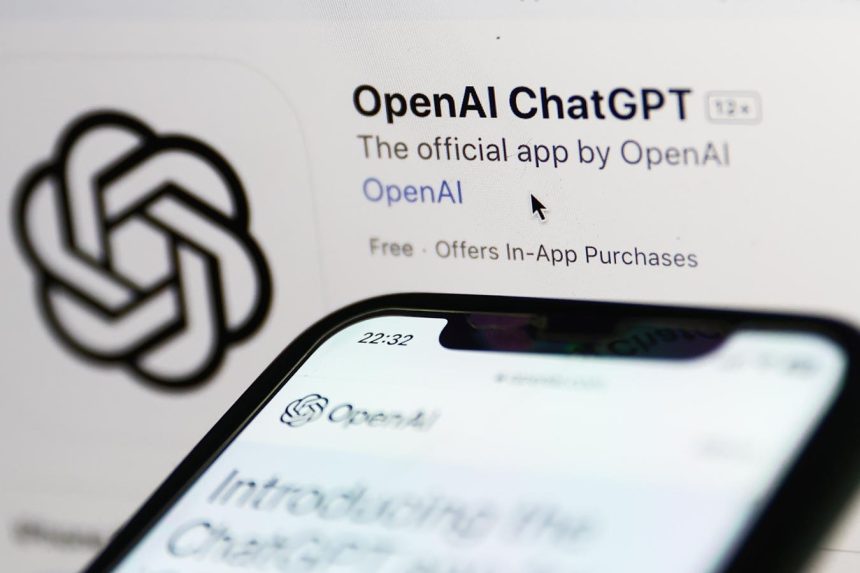OpenAI’s groundbreaking conversational AI, ChatGPT, has taken a significant leap forward with the introduction of ChatGPT Search, a feature now freely available to all users with an OpenAI account. This marks a pivotal moment in the evolution of online search, potentially reshaping how we interact with information on the web. Previously restricted to paying subscribers, this widespread access democratizes a powerful tool, enabling a wider audience to experience the benefits of AI-powered search. ChatGPT Search seamlessly integrates with the existing ChatGPT interface, offering a more intuitive and conversational approach to finding information. Instead of typing keywords into a search bar, users can simply pose their questions in natural language, much like conversing with a human. ChatGPT then leverages its vast knowledge base and web searching capabilities to provide comprehensive and contextually relevant answers.
The seamless integration of search within the ChatGPT interface eliminates the need for separate search engines for most queries. Users simply type their questions into the ChatGPT prompt, and the AI determines whether the query requires real-time information from the web. This streamlined approach simplifies the search process and creates a more fluid and conversational experience. While there is an explicit button to force a web search, it often proves unnecessary as ChatGPT intelligently recognizes when web-based information is required. This intuitive functionality allows users to focus on their questions rather than navigating different search interfaces. The ability to directly access web search capabilities within the conversational AI context positions ChatGPT as a potential one-stop solution for information retrieval, challenging the traditional dominance of search engines like Google.
One of the key advantages of ChatGPT Search lies in its ability to understand and retain context throughout a conversation. Users can refine their searches by simply adding more details or clarifying their initial queries without repeating themselves. This contextual awareness makes the search process more natural and efficient, allowing for a more iterative and conversational approach to information discovery. This stands in contrast to traditional search engines where users often need to rephrase or add keywords to narrow down their results. Furthermore, ChatGPT Search provides direct links to relevant websites, offering users a quick way to access original sources and delve deeper into specific topics. This integration of direct links streamlines the information gathering process, further enhancing the user experience.
Despite its advancements, ChatGPT Search, like other LLM-based systems, faces inherent challenges. LLMs are probabilistic by nature, meaning they generate responses based on statistical probabilities rather than true understanding. This can occasionally lead to “hallucinations,” where the AI generates incorrect or nonsensical information. It is crucial for users to exercise critical thinking and verify information from multiple sources, especially when accuracy is paramount. To address this, ChatGPT allows users to request sources for its responses, enabling fact-checking and promoting responsible information consumption. This transparency feature empowers users to assess the reliability of the information provided, mitigating the risks associated with relying solely on AI-generated content.
ChatGPT Search also caters to specific search scenarios, such as finding businesses. It presents a visual listing of options with relevant details like ratings, estimated costs, and operating hours, along with a map view for easy location identification. This feature transforms ChatGPT into a practical tool for everyday tasks, going beyond simple information retrieval. The integration of visual elements and contextual information enriches the search experience, providing users with a comprehensive overview of available options. This move towards more specialized search functionalities further solidifies ChatGPT’s potential as a versatile platform for various information-seeking needs.
Looking ahead, OpenAI has teased a real-time audio experience, allowing users to interact with ChatGPT through voice conversations. This feature promises a more natural and intuitive way to interact with the AI, especially in hands-free situations like driving. While voice interaction with AI assistants can sometimes be less efficient than text-based queries, its convenience in certain scenarios makes it a valuable addition. The evolution towards multi-modal interaction, combining text and voice, signifies a broader trend in AI development, aiming to create more human-like and adaptable conversational agents. While monetization strategies for the free version of ChatGPT search remain to be seen, its current availability without a paywall opens up a wealth of possibilities for users seeking a more intuitive and conversational approach to online search.



